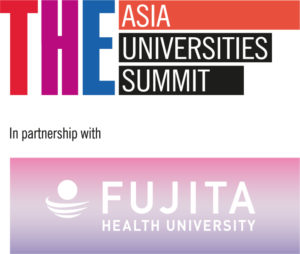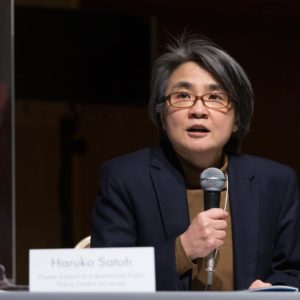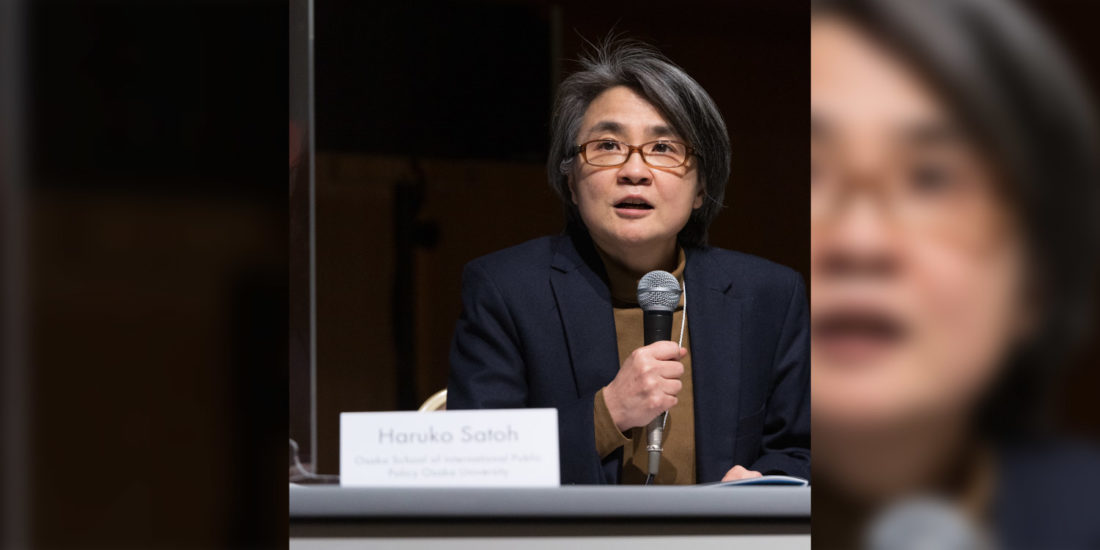 Professor Haruko Satoh, Co-Director of the IAFOR Research Centre will speak at the Times Higher Education Asia Universities Summit 2021 on a panel titled: Can an international outlook in higher education help to reduce geopolitical tensions? What are the limits to closer global ties?
Professor Haruko Satoh, Co-Director of the IAFOR Research Centre will speak at the Times Higher Education Asia Universities Summit 2021 on a panel titled: Can an international outlook in higher education help to reduce geopolitical tensions? What are the limits to closer global ties?
In a session moderated by Joyce Lau, Editor (Asia) of the THE, Professor Satoh will be joined by Safwan Masri, Executive Vice-president of Global Centers and Global Development at Columbia University.
Professor Haruko Satoh
Co-director of the IAFOR Research Centre, Osaka University, Japan
 Professor Haruko Satoh has recently been running two projects, one at the IAFOR Research Centre and the other a Japanese Ministry of Foreign Affairs commissioned project on enhancing international cooperation on preventing outbreaks of infectious diseases on cruise ships. She previously ran the OSIPP student exchange project at Osaka University and has worked at the Japan Institute of International Affairs, Chatham House and Gaiko Forum. Professor Satoh studied at Mount Holyoke College, Johns Hopkins University and the University of Cambridge. She is on the international advisory board of the LeidenAsiaCentre and a member of the Executive Council of the Asian Political and International Studies Association.
Professor Haruko Satoh has recently been running two projects, one at the IAFOR Research Centre and the other a Japanese Ministry of Foreign Affairs commissioned project on enhancing international cooperation on preventing outbreaks of infectious diseases on cruise ships. She previously ran the OSIPP student exchange project at Osaka University and has worked at the Japan Institute of International Affairs, Chatham House and Gaiko Forum. Professor Satoh studied at Mount Holyoke College, Johns Hopkins University and the University of Cambridge. She is on the international advisory board of the LeidenAsiaCentre and a member of the Executive Council of the Asian Political and International Studies Association.
Session Information
Can an international outlook in higher education help to reduce geopolitical tensions? What are the limits to closer global ties?
2 June, 10:30 AM – 11:15 AM GMT+9 (45 Min)
Universities must look beyond borders in order to share and grow knowledge to support human progress. While the advantages of internationalisation are generally accepted, and widely evidenced through joint university research projects and transnational education, cultural differences or political challenges can be impediments. How can universities overcome such obstacles to reap the reciprocal advantages of international exchange?

